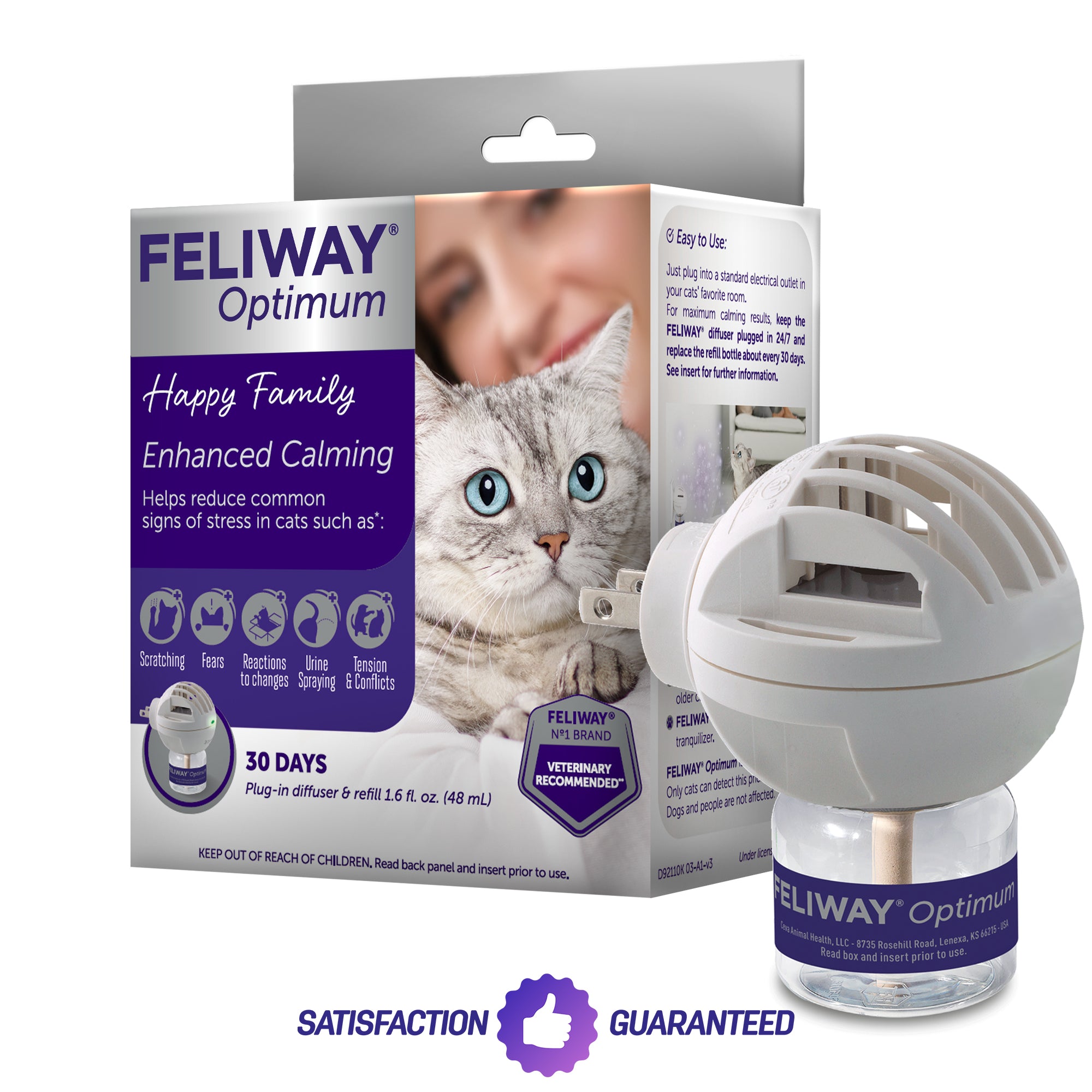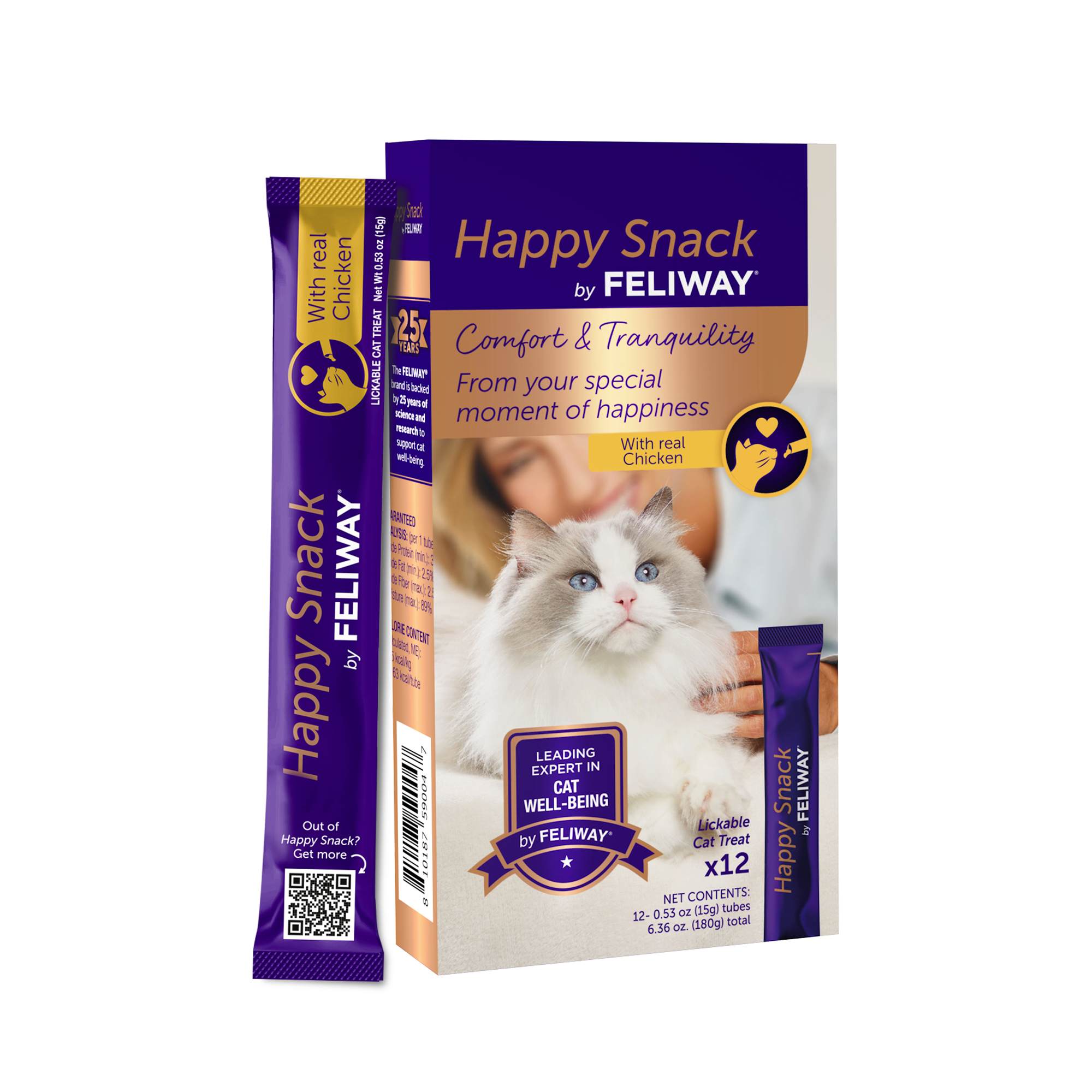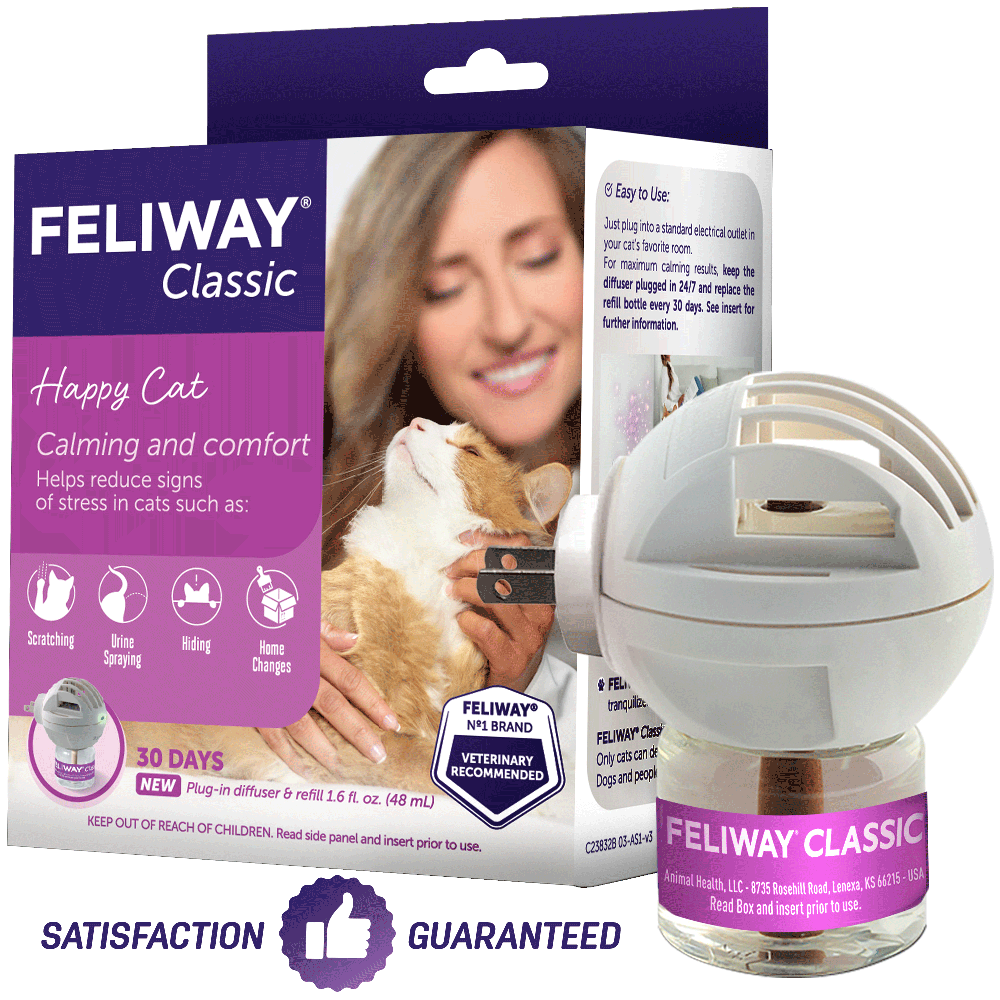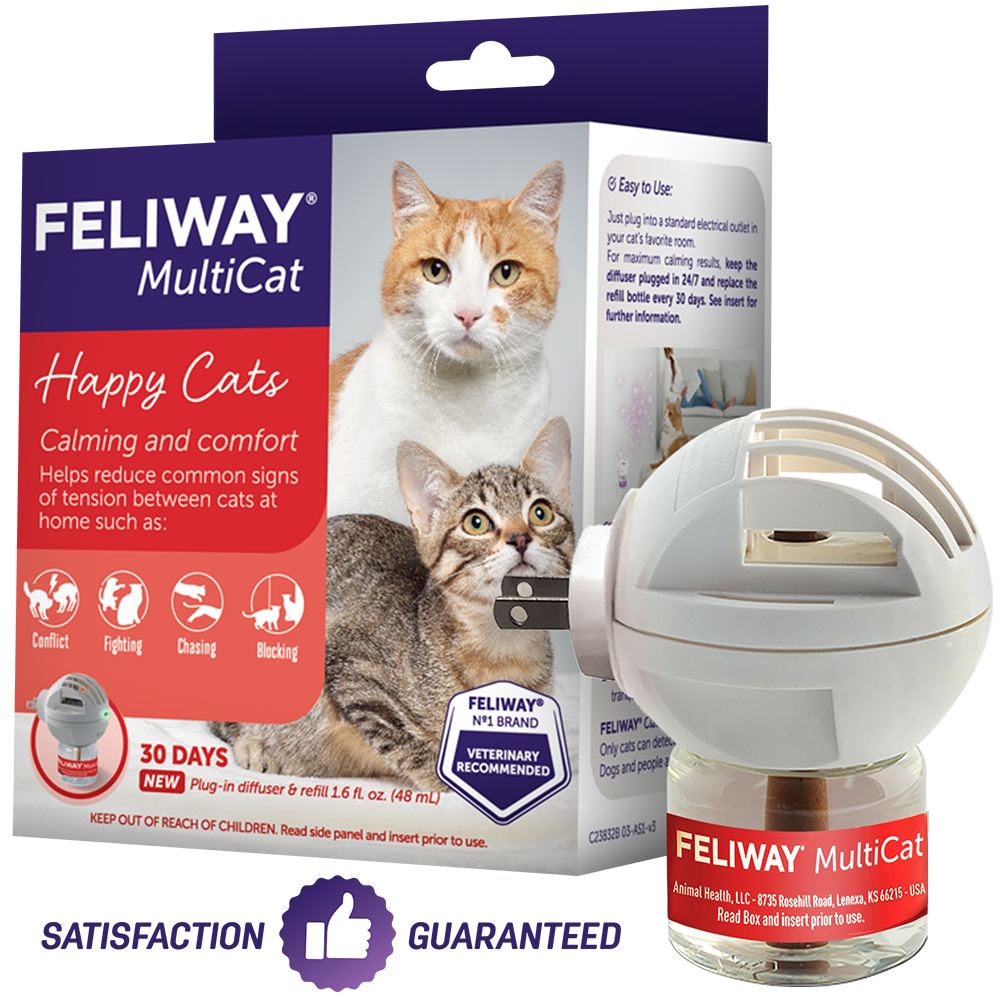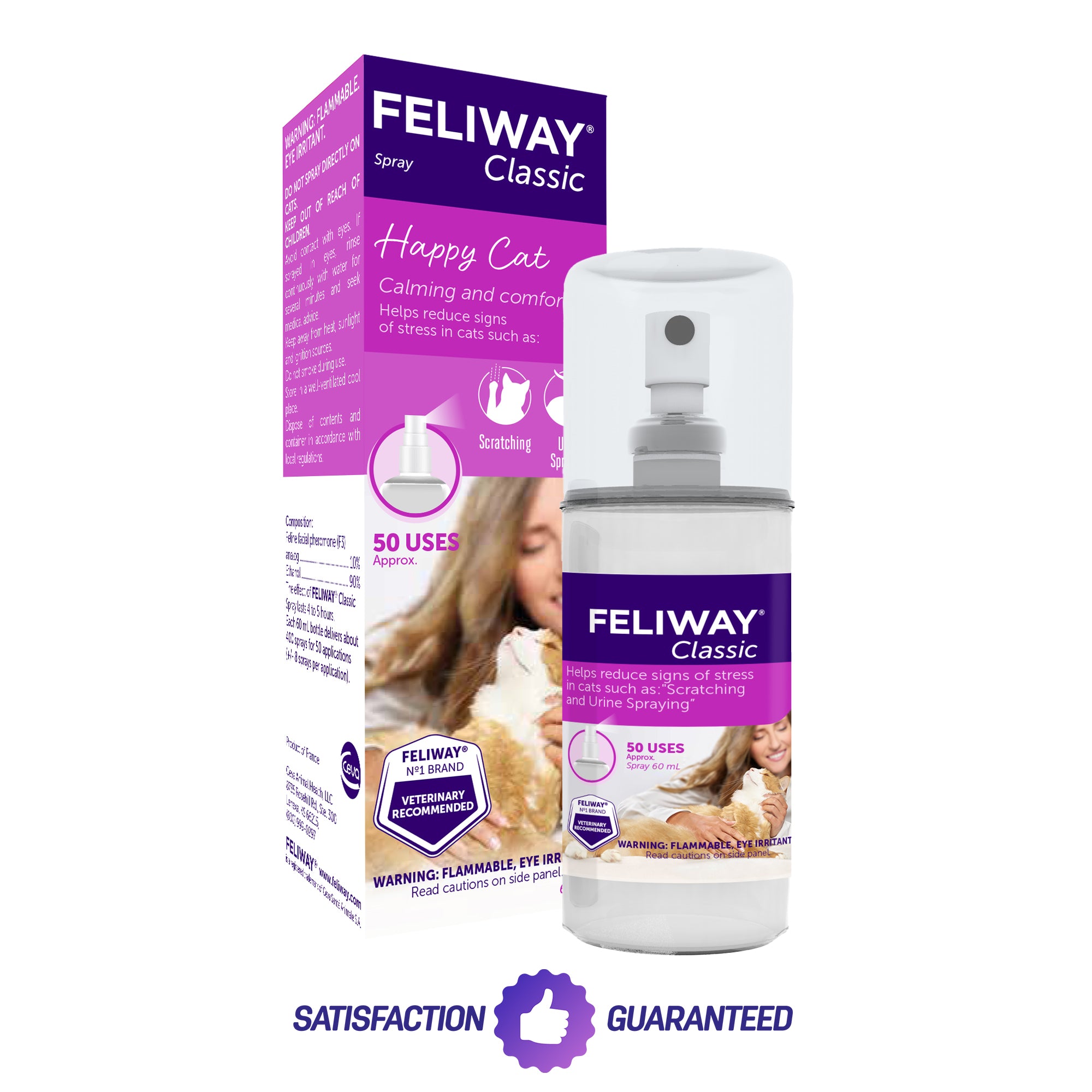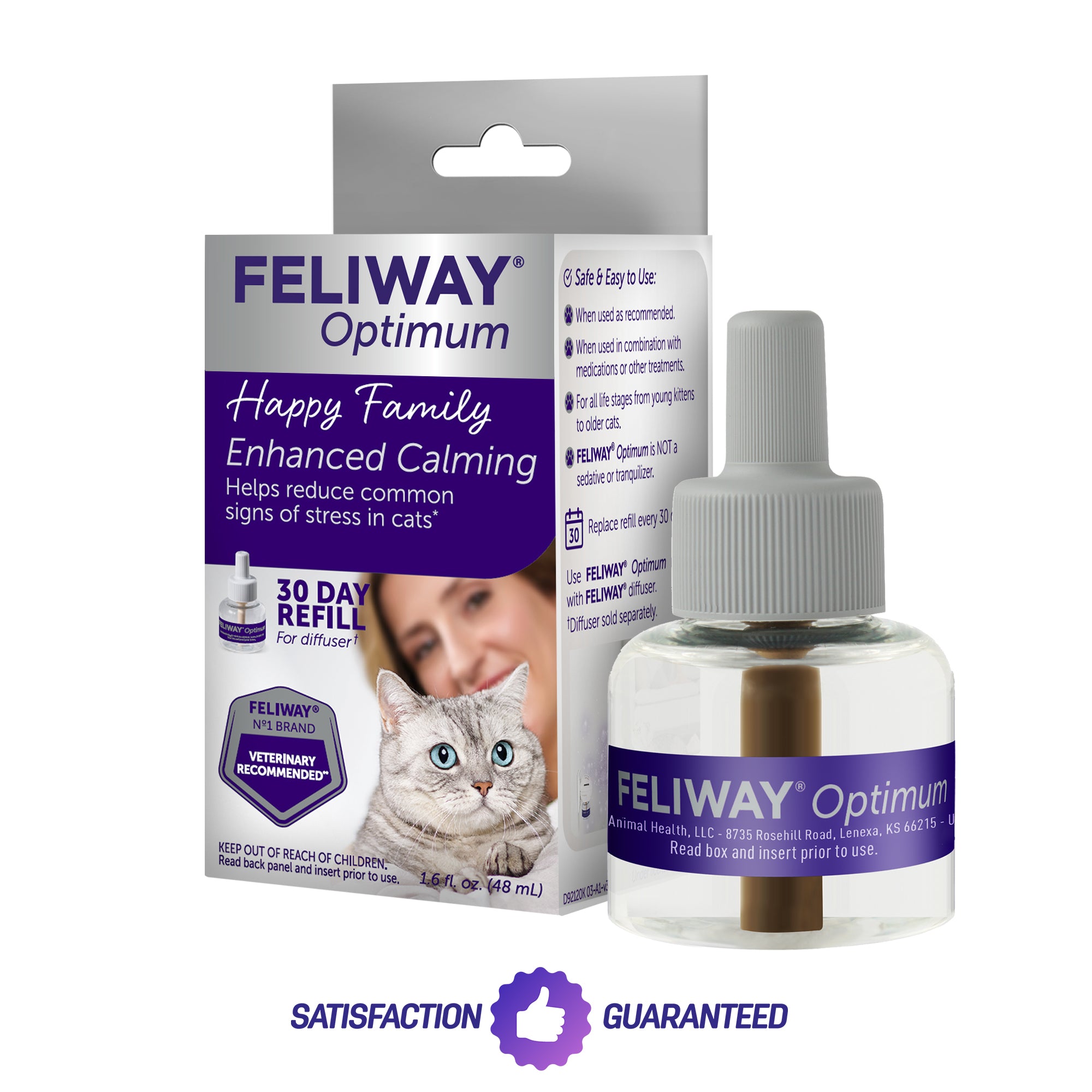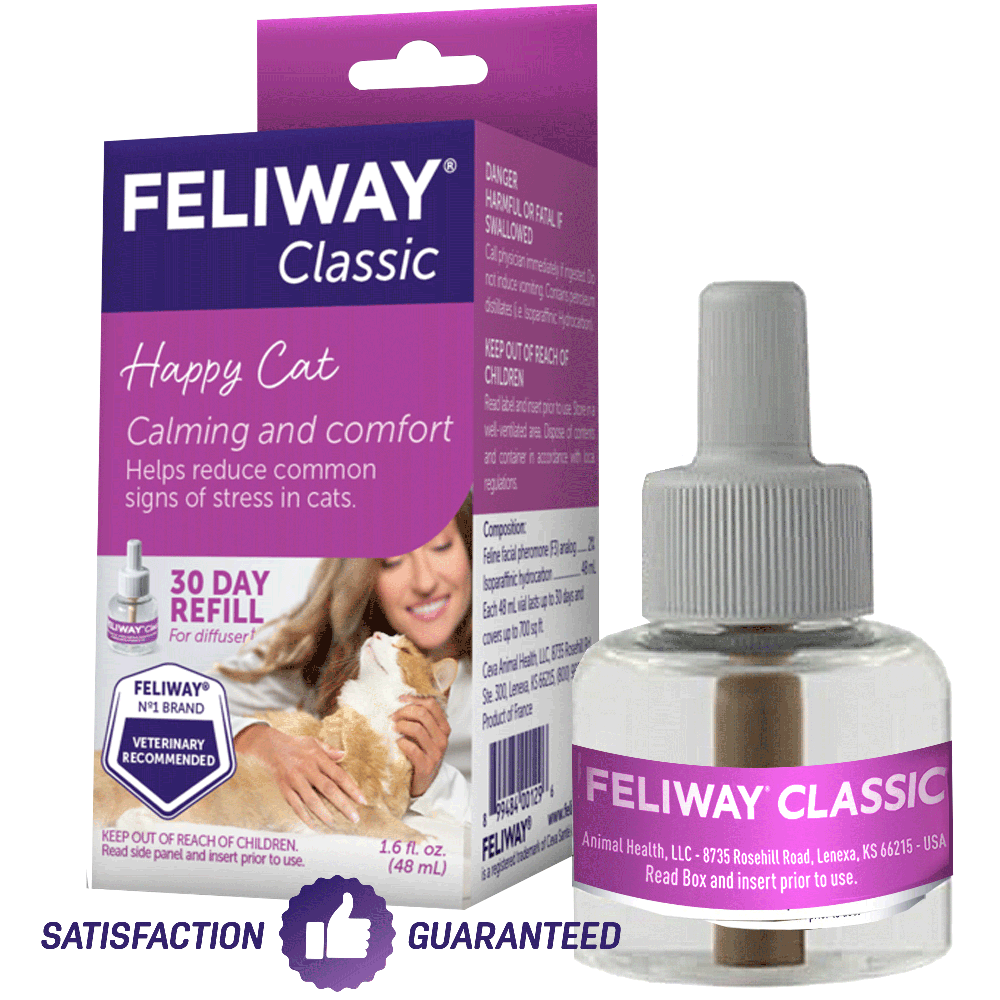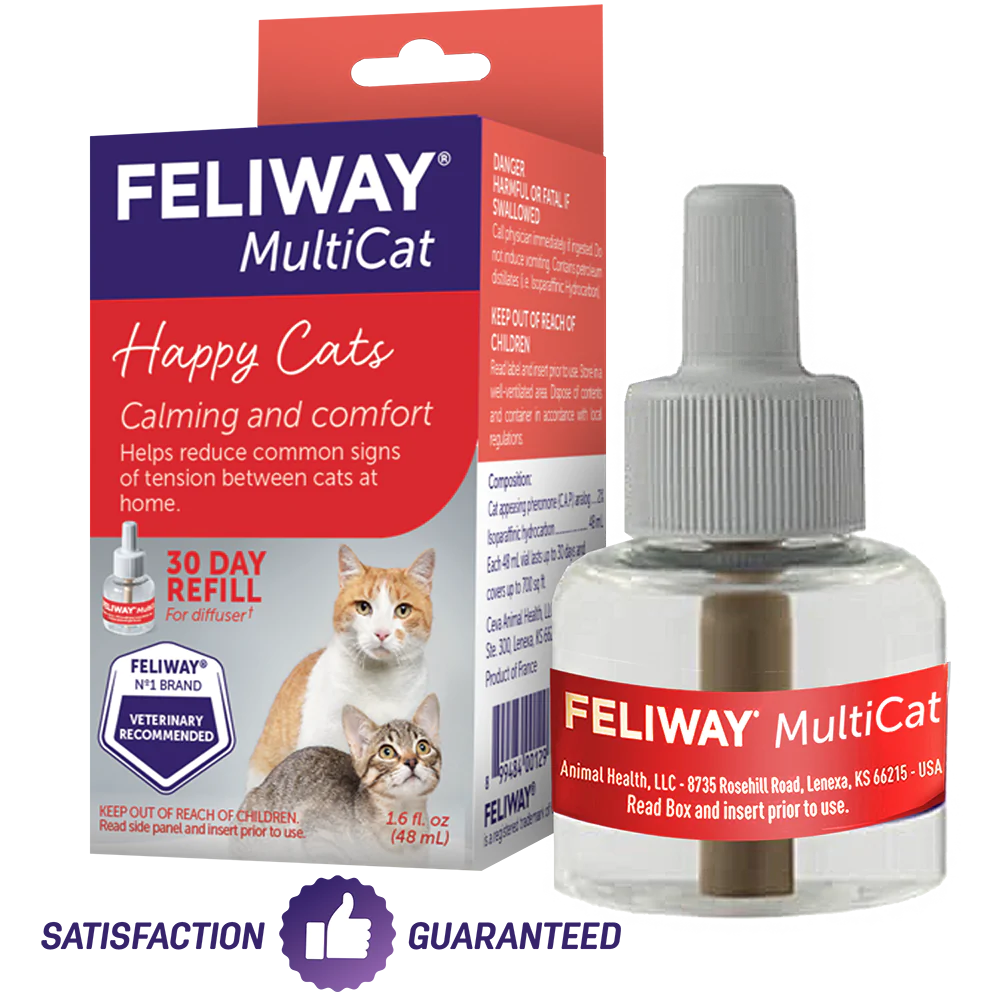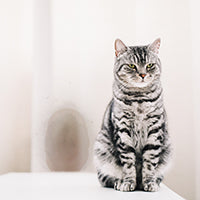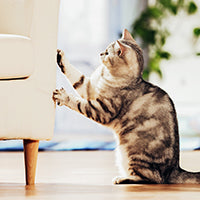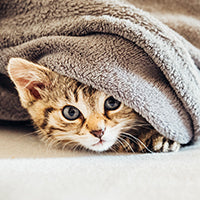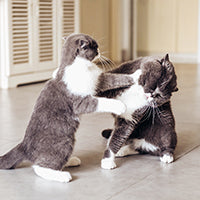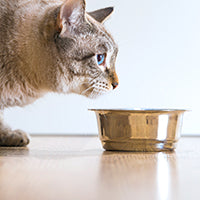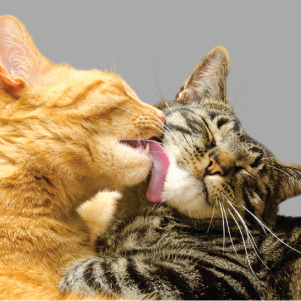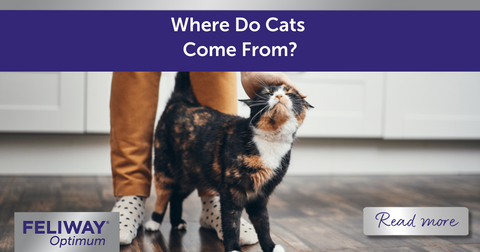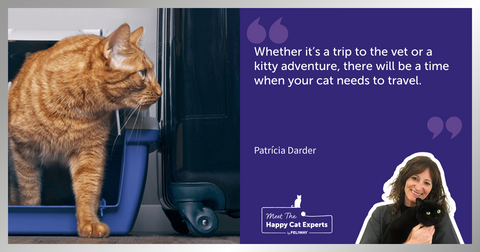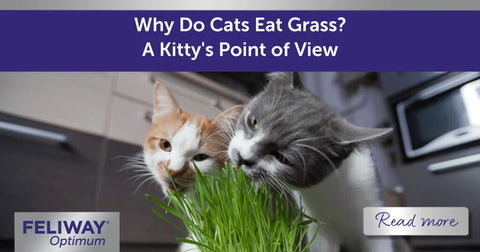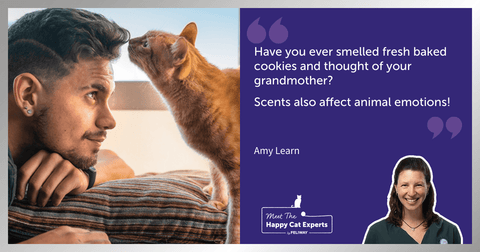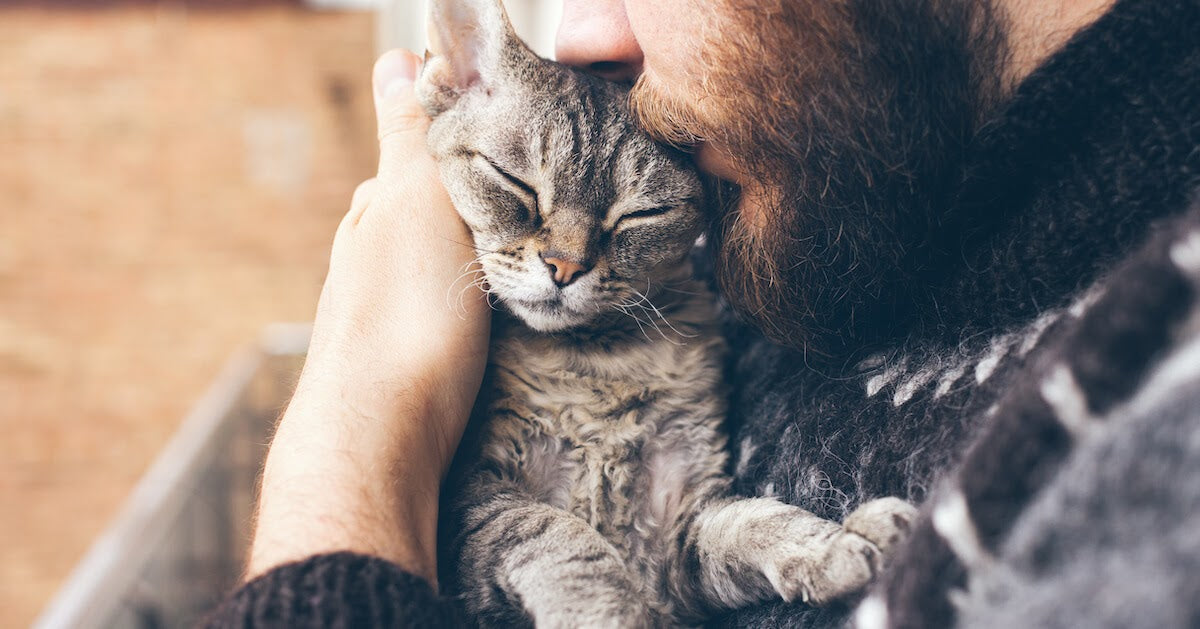
13 Ways to tell if a Cat is Purrrfectly Happy!
Do you sometimes wonder how happy your cat is? Cats are independent creatures and sometimes they can give you the impression that they are quite happy with their own company, and can take or leave your attention! But every cat is unique and shows signs of happiness in different ways - you just need to know what you are looking for!
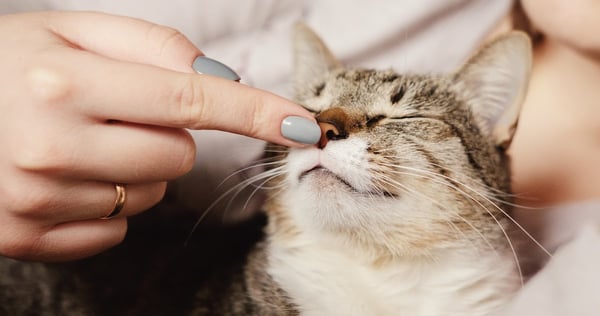
If you want to see how happy your kitty is, their body language and habits will give you a lot of clues!
Looking at their body language:
- Relaxed posture: If your cat is laying down with all four paws tucked under their body, you can be sure they are quite happy at that moment, and relaxed where they are.
- Tail position: A happy cat’s tail will be upright with a little bend at the tip - so when they walk to you with their tail in this position, you can rest assured that they are feeling friendly and happy to see you!
- Eyes: Are your cat’s eyes almond shaped and perhaps look as if they are half closed or are they blinking slowly when looking at you? This is a friendly greeting and you should blink slowly right back at them to say hello! It would be impolite not to!
- Ears: When it comes to understanding if your cat is happy or not, their ears are a great indicator. If they are low and flat to their head, it’s best to give them space, but if their ears are facing forward, you’ll know they are happy.
- Whiskers: Whiskers are an amazing tool in a cat’s arsenal of senses! Not only do they help them to detect moving prey, they also indicate your kitty’s mood. A relaxed and happy cat will have their whiskers fanned out to the side of their face. But watch out if their whiskers are close to their face - this could mean they are not so content, and could be feeling anxious. There’s a subtle difference, but an important one to be aware of.
- Grooming: There are many reasons cats groom themselves; to keep themselves cool in hot weather, to stimulate circulation and regulate body temperature, or to distribute natural oils and keep themselves in tip-top condition. In fact, cats have been known to groom themselves up to 50% of the time that they are awake! But as long as they are not grooming excessively more than this (which could indicate an underlying problem) you will know your cat is relaxed and happy when they are preening themselves. Keep an eye out for any bald spots or an increase in hairballs, as this could also indicate that your kitty is over-grooming.
- Appetite: Good eating habits support a healthy cat, and a cat with an appetite is often a happy one. Remember cats are tidy creatures; they like clean bowls, in the right location, and they like to be undisturbed.Find a nutritious cat food that your cat thinks is tasty, and try to give them a little flavour variety (but introduce new foods gradually, a little at a time to help your pet adjust). Treats are, of course, welcomed by our cats! But to help your kitty keep their appetite and stay a healthy weight, give them sparingly! If your cat seems to have lost their appetite there can be a number of reasons, from stress to an underlying medical condition, so always check with a vet.
- Sounds: A purring cat is very calming, particularly if you are both curled up on the sofa together - when you can bet they are comfortable and happy. But watch out if they are purring continually or at unusual times as this can mean they may have an injury or are stressed.
- Routine: A cat likes routine and to know how their day is going to pan out, so keeping a regular routine will keep them content! If you are expecting a change in routine, or planning on introducing another pet into your home, remember that this can cause stress to your furry friend - so take steps to minimise disruption by changing routines, or introducing new pets gradually.
- Sleep: Cats and naps always go together! Happy, healthy cats love lots of naps but the amount of sleep a cat needs varies depending on their age and their activity levels - and if their habits suddenly change, it is worth a health check with the vet. Kittens can be very active exploring, and it is natural for them to flop down in happy exhaustion after a busy day. Junior cats may spend a lot of time climbing and stalking, so you may find them curled up in a sunny spot, too, after busy activities! Older cats may be less energetic, however, so make sure you provide some safe spots where they can curl up, happy in the knowledge they won’t be disturbed. What’s not to love about a cat nap!
- Play: A happy cat loves to display its natural predatory instincts through play. They can spend a long time chasing a toy mouse on the end of a string, or a laser light around the floor, so set regular playtimes aside to play with your cat; around 20 minutes in the early evening when cats are normally at their most active is a good time. Building this into their routine will help to strengthen your bond and lead to a healthy, happy cat.
- Choice: Did you know that you can train your cat? Activities such as getting them used to their carrier, litter training and name recognition all count! However, it’s normal that a cat will often only do what they want to - although treats might help persuade them! They will only curl up on your lap when they feel comfortable, or come in when they are called from the garden when they are ready to - it’s always a good idea to train recall with your kitty so you can rest assured that they will always return when called. And allow them to choose when they will interact with you to help them stay happy. They will do things on their own terms, happily!
- Inquisitive: Whether they are exploring the garden, investigating something new in the home, or hiding in a cardboard box, an inquisitive cat is a happy cat!
A cat’s meow can sound the same to a lot of people, but to a trained ear, there are subtle differences that you will instinctively notice that tell you how your cat is feeling. If your cat is content, their meow will be higher pitched, but if low pitched, it may mean they are unhappy or a bit annoyed!
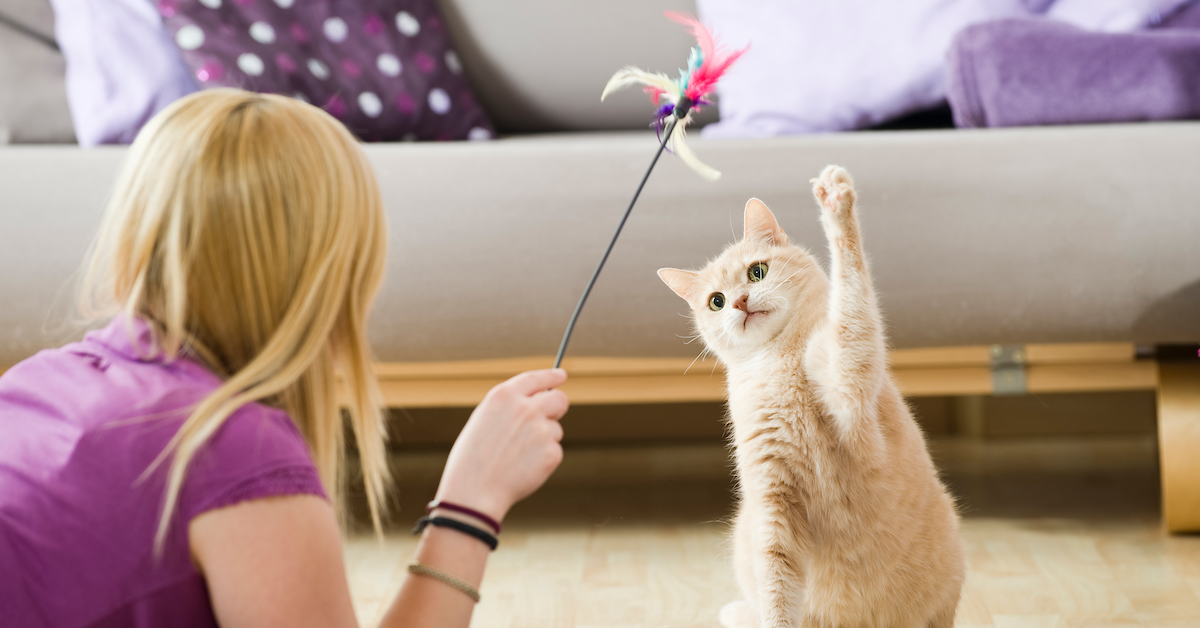
If you’re still not certain if your cat is happy or not, and you’re wondering how they are feeling, why not take our Cat Body Language quiz? You might surprise yourself and learn more about your cat than you think!
To give your cat a head start, FELIWAY Optimum can help them stay purrrfectly serene and confident through the challenges of a busy modern life! Helping your cat cope with common signs of stress, a diffuser plugged into the room where your cat spends the most time will help them stay happy and relaxed!
